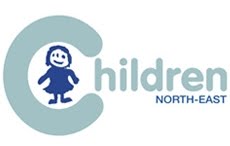It’s always a pleasure to see so many friends and
supporters of Children North East for an evening of fun and fundraising. That is what happened last Friday at our annual summer fundraising party - we no longer call it a charity ball because over the years it has gathered the reputation of being the best
party of the summer season!
Sandcastles remind us how the charity started in 1891 taking poor children from the grimy, sooty city to the fresh air and sunshine of the seaside to benefit their health. Every year we organise probably the UKs biggest sandcastle competition on South Shields beach where teams of school children assisted by business professionals compete for the coveted Sandcastle Trophy that was awarded on the night. This year's winners were Faithful & Gould and their school team St Mary Magdalene RC, Seaham The trophy remains with Faithful & Gould until next year when the next business winner will be announced. Take a look at dozens of photographs form the Sandcastle competition on our facebook page: www.facebook.com/ChildrenNorthEast
We raised a fantastic £25,600 on the night but for me there was a more important, human story that night:
Callum is 17 years old, he has Cerebral Palsy and Epilepsy, he lives in Newcastle. Callum contacted our Newcastle Youth Link peer mentoring project asking for a peer mentor to help him find
voluntary work. He wanted more for himself than just going to college then back
home reading comic books and playing video games. Callum was assessed by Karen, our disability specialist at Newcastle Youth Link and given a trained young female peer mentor. Their first goal together was to
assist Callum to learn how to use public transport and find his way around
Newcastle.
The mentoring relationship was progressing well when Callum was
invited to speak at the Sandcastle Summer Party. He came with Karen and
his peer mentor and spoke from the heart of his difficulties and experience of
Youth Link. Perhaps Callum’s words contributed to the exciting and profitable
auction which followed, but most generous and more important were the offers of two voluntary
opportunities for Callum that evening. One could not have been more perfect –
sorting out donated comic books in the Oxfam charity bookshop.






